- Home
- Keith Douglass
Frontal Assault sts-10 Page 2
Frontal Assault sts-10 Read online
Page 2
Of the eighteen in the crew, they estimated that only four would be on duty at night.
The dark-clad man tied off his end of the nylon line to a sturdy iron fixture, then gave it two short tugs. Two pulls answered him from the bottom. The man pushed behind a fixture and blended in with the ship. He watched carefully both ways. A door slammed somewhere on the houselike building forward of amidships. It was made up of three or four decks topped by the pilothouse with the navigation and equipment section, the bridge, and the communications room. There also were quarters in this house for the officers and some of the crew. It was the nerve center of the computer-operated ship.
He could see the poop deck on the stern of the long ship. That area covered the loading and unloading machinery and the huge power plant that propelled the ship. There were quarters there for the crew as well.
In the intense briefing yesterday, he was told that the tanker was 2,400 feet long. That was almost the length of eight soccer fields laid end to end! Fantastic. He would believe it when it grew light and he could see for himself.
They told him it was 430 feet across, farther across the big ship than the width of two soccer fields. The deckhouse was supposed to be seven stories tall.
Their leader said he was not sure just how many crewmen were on board. With every advance in computer technology, they trimmed down the crew. They were figuring that there were still eighteen men on this older ship. It still had one hull, not the double hull the newest tankers had.
He couldn’t see the bow of the ship, but up there was the forecastle. There would be no crewmen or workmen in the forecastle, so they would ignore it during the first attack.
One of his men came over the rail from the rope. He sank to the black deck at once. The men came regularly after that until all eight were on board. Their leader came last.
Each man knew his assignment. Four would take over the poop deck area, to capture the crew, killing as few as possible. They would need most of the Americans to run the ship. Four men would go to the large boat house.
Kamel Jaber took off his wet suit helmet and discarded it over the side. The other divers did the same. He gathered his men around him as they drained the seawater from the barrels of their weapons and charged rounds into the chambers.
“You know what to do. We will not fail. We keep as many alive as we can to run the ship. Your reward will be great. May you go with Allah.”
They moved cautiously in the darkness of the night along the huge ship toward their targets.
Jaber took three key men with him. One was a ship’s engineer, the other had a pilot’s license for the coastal regions of the Persian Gulf, and the third man was his best shooter.
They moved like shadows along the side of the ship outside the array of pipes across the wide deck. Jaber knew the giant ship held its crude oil in all of its ninety holds. It was full and heading to America. He smiled. Not for long. They reached the metal door that led into the deck-level floor of the house. It was unlocked. He edged it open and peered inside. It looked like a dressing room for foul weather. Various lockers covered one wall. Another had pegs with wet-weather clothing and hats. A stairway showed to the left.
Jaber knew the floor plan of the tanker’s house. He had studied it for a week. The steps led to the second level, where there were living quarters for the captain, first mate, and chief engineer. He needed all three of them alive and uninjured.
They cleared the three rooms on the first level, storage and supplies. Jaber took the lead up the steps. He had a stun gun and a silenced pistol. The steps were metal, and their rubber-soled diving boots made not even a whisper of sound. Jaber came up the steps to where he could see the second level. Just as in the plans he had seen, there was a hallway with four doors off it, and more steps up to the pilothouse.
He tried the first door. His three men moved in close behind him. Unlocked. He turned the doorknob gently, then edged the panel in an inch. Darkness. He took out the penlight and thrust the door open a foot, then shone the light inside. One bed. The man on it slept with only a sheet over him.
Jaber moved quietly to him, pressed the silenced automatic to his throat, and shook him.
“Wake up,” he said in English. The man mumbled and tried to turn over.
“Wake up,” Jaber said louder. One of his men had closed the door behind them. The man jolted upward, his eyes wild in the beam of the small, powerful light.
“What the hell?”
“True, my friend,” Jaber said, pushing the automatic into the man’s side. “One outcry, and you will be in hell. Are you the first mate or the engineer?”
“First mate. What is this?”
“Nothing to get alarmed about. Hands behind you, please.”
One of Jaber’s men came up quickly and taped the man’s hands together behind his back, then put another piece of tape across his mouth. More tape fastened his ankles together. Then they put him back on the bunk.
“You will stay there, First Mate, or you’ll be shot. Do you understand? We’re taking over your ship.”
The first mate’s eyes focused on the shadow behind the light, but he saw little. He nodded.
The four men left the room silently.
The next room was unlocked and empty.
The third room was the same size as the other two. They caught the chief engineer in the middle of a dream, and he called out loudly before they could awaken him.
He submitted quietly after that and was taped and left in his bunk.
The next room had to be that of the captain. Jaber knew it would be twice the size of the others. They had plenty of room on a ship this large. He tried the door. Open. Again, he edged the panel in an inch. A faint night-light glowed. He eased the door open fully. It was the captain’s cabin. Three times as large as the others. A big double bed, a living room effect, and a door that could lead to a bath.
Jaber moved in quietly, put his hand over the captain’s mouth, and shook his shoulder. He was older, in his fifties. He came awake slowly. His eyes flashed as he tried to sit up.
“Stay down, old man. Try to cry out, and I’ll zap you with this stun gun. You want fifty thousand volts of electricity?”
The captain shook his head.
Jaber removed his hand. “We’re taking over your ship. We want you to get up and get dressed. Then we’ll go to the bridge and put my men in charge. Oh, yes, we can sail this big island of a boat quite well. We’re all experts in many fields. Quickly now, get dressed.”
Three minutes later, the captain led the way up the steps to the bridge and pilothouse. Two men were on duty. The ship was on automatic controls, moving down the middle of the wide Persian Gulf. The radar man kept watching three screens that showed the area far ahead, the bottom line of the gulf, and the area immediately forward.
Captain Norman Phillips, master of the Jasmine Queen, cleared his throat. “Gentlemen, we have visitors. Please do exactly what they tell you to do. Offer no resistance.”
“Captain, who are these men?” The man behind the wheel asked the question. At once a pistol slashed downward across the side of his head, and he crumpled to the floor.
“Keep quiet and stay alive,” Jaber said in English. Two of his three men peeled out of their wet suits. They wore swim trunks under them.
“You two men strip off your clothes,” Jaber told the two Americans. They looked at their captain. He nodded.
A few minutes later, the Arabs had put on the sailor’s clothes and were manning the wheel and the radar. Jaber and Nuri Haddad checked over the instruments and nodded. They were just as the plans said they would be. Nothing that Nuri hadn’t handled before.
Jaber prodded the two men in their underwear and the captain back down the steps to the officers’ quarters. He pushed the two crewmen and their captain into the vacant room.
“The keys to lock these doors,” Jaber said. He had noticed while inside that they had no night locks on them, could only be opened with a key. The captain produced
a master key, and Jaber locked the three doors.
“Do not attempt to communicate with anyone, Captain. Do you have any kind of a satellite radio in this cabin?”
Captain Phillips shook his head.
“Good. We will kill anyone we have to, but we do not crave to see your blood flow. Cooperate with us and live to sail another day.”
Jaber locked the door from the outside and hurried down the steps with his fourth man to check on the takeover of the poop deck, where most of the crew would be sleeping.
They jogged down the quarter of a mile to the stern of the long ship and found one of their men on guard outside. He slipped out from some shadows.
“All taken care of here, Jaber. Two of them grabbed hidden guns, and we had to kill them. The rest submitted to our demands and we have them all locked up in a storage room, with one door and no portholes.”
“Well done, Abid. How many men?”
“We have eighteen, counting the two dead ones. They said they are one man short on the crew. He took sick in Kuwait City.”
“So, if your man isn’t lying, we have all twenty-two of them. A larger crew than we expected. Good work. Now we settle down to running this tanker to its new destination.”
The Arabs cheered.
“Yes, when we sell the oil, each of you will receive a share of our half of the money. The other half goes to the glorious regime.”
“Sir, any idea about how much…”
Jaber laughed. “Faud, it is far too early to count our money. We have a long journey, and there could be many problems before we get there. We will be selling the crude at half the world market price, but that still should produce twenty-five million dollars. Half of that and divided by ten… would be a million and a quarter American dollars for each of you.”
Faud Baali shook his head. “I would not know what to do with that much money. I would be lost.”
“That’s why we don’t count it yet,” Jaber said. “We have much work. First, we check each section of the ship we can get to. You remember your assignments. Who went to the forecastle at the front of the ship?”
“Fahim,” one of them said. “It is clear of any men. He came back and is in the crew’s kitchen.”
Jaber grinned. That was like Fahim, his brother-in-law. He had never seen a kitchen, a café, or a restaurant that he didn’t like.
“Let’s move. Check out all of the areas we assigned, and come back here. Nuri will be in charge of this detail. The other four of us will be with the captain and in the boat house amidships.”
Locked in his cabin, Captain Phillips wondered what he could do. He had told the ship’s owners they should have more security on board. They had only one man designated for that job. Where had he been? One man against these terrorists would not have prevented the takeover. They had done it so easily. He didn’t even protest, let alone try for the Smith & Wesson on the back of his bed.
What could he have done differently?
What could he do right now?
At least he wasn’t tied up.
The intercom. It was a type of telephone service, with buttons to push for various parts of the ship. He went to the phone and pushed the button for the first mate.
“Yes?” a tentative voice came on the line.
“Tabler, is that you?”
“Captain! Damn, I wondered if these would work. Didn’t want to try. Can anyone else hear us?”
“Not on the wires. At least they didn’t tie us up. Who are they?”
“Arabs, all I can figure out. They did tie me up at first, but then undid me. I’m locked in here. What about you?”
“Locked in, but I’ve got a spare key here somewhere.”
“Took all my keys and billfold, everything.”
“Even if we could get out, what could we do?” the captain asked. “They’ll have the radio room under control with somebody to answer any calls in English. The ones I saw all had submachine guns. Terrible weapons.”
“What about Casemore, our safety and security man? Was he captured? He said he was going to work tonight, stay up all night and watch the crew quarters and see if he could figure out who was snipping away at the poop deck kitchen supplies. We have enough food for twice this crew. Why would anybody want to steal cookies and ice cream?”
“For the thrill of it, maybe,” The captain said. “You think there’s a chance that Casemore saw them coming and hid somewhere? He could be free on the ship?”
“A chance,” Tabler said. “I’d say a damn good chance, Captain. Maybe he could get to the radio room and send out a distress call.”
“Maybe. Don’t try to call anyone else on the phone. We don’t know who might pick up.”
“Captain, we better get some sleep. Tomorrow, I figure they are going to need some of us on the bridge for the radio, if nothing else.”
“We’ll fight that battle tomorrow, Tabler. Yes. Sleep will be helpful.”
Hidden in the poop deck deep in the machinery used to load and unload the big ship through dozens of pipes, lay Safety Officer Ben Casemore. He had seen the black-suited figures slip on the ship. He was too far from a phone to warn anyone. Then, when he had tried to reach the phone in the poop deck just above the machinery, the attackers swarmed in there and took down the crew. He had heard two shots. Somebody had died.
He stared at the machinery around him. He was the fucking safety officer. Just what was he supposed to do now to retake the ship from the swarm of terrorists who had captured her with only two shots fired? He had no idea.
3
Naval Chocolate Mountain Gunnery Range
Nyland, California
Third Platoon of SEAL Team Seven had made a silent move two miles into the desert mountains from the gate at the big gunnery range that the SEALs used for live firing exercises and training. The bleak nightscape of desert spread twenty-five miles to the north and fifty miles all the way to the Colorado River on the east. There was no chance a thunder of live firing could hurt any civilians.
Lieutenant Commander Blake Murdock watched his new SCPO, Will Dobler, working the platoon. He’d given the senior chief petty officer the problem: Move the platoon two miles to the target. Attack the “bungalow” from two sides, make sure of the enemy casualties, re-form, and move out a mile due north to avoid any countermeasures.
So far, Dobler was working well. He had been a SEAL for six years, two as an instructor at BUDS/S and four with the teams. He had proven himself under fire in eight actions all around the world. He was an easygoing German-Irishman who brought a little more maturity to the platoon. So far, he had the respect of the men who were quickly learning to have confidence in him. He would need that in the days to come.
Murdock watched as Dobler spread out the men in silent formations in front and to the side of the bullet-absorbing bungalow. Murdock’s earpiece spoke.
“Silenced snipers, both squads, take out the guards.”
Murdock heard the whispers of the suppressed NATO round weapons firing. All weapons but the machine guns had silencers on. The Motorola personalized radio came on again. Each SEAL had one with a transceiver on his belt, an ear speaker, and a lip mike for instant communications up to nearly a mile. For wet work, they zippered into a waterproof pouch on the men’s combat vests.
“Let’s take it down,” Dobler said on the radio. “All fire, now.”
The desert landscape sparkled with the flashes of fifteen weapons. The two H & K 21-E machine guns chattered off five- and seven-round bursts.
Thirty seconds into the firing sequence, the radio came on.
“Ching, Franklin, two WP forty-mike rounds each on the target, now,” Senior Chief Dobler said. When the four WP rounds bathed the front and side of the bungalow with starbursts of burning phosphorus, Dobler called a cease-fire.
“Jefferson, Ostercamp. Get in there and clear it, then make sure of the KIAs. That means one round in the head of each of the dummies in there. Move.”
Two points for Dobler. Murdock watch
ed the little drama play out, heard the clear signal on the Motorola, then the four single shots that sounded from the bungalow. The two SEALs came out, charging back to the line of their buddies, who still lay in the darkness forty yards from the target.
“Phase one completed, Commander. Orders?” the senior chief said in the radio.
Two more points for Dobler. He was going to work out. “Gather the platoon around me for a talk-down,” Murdock said.
A pair of minutes later, Murdock stood in the center of the platoon. “Senior Chief, any suggestions or ass chewing for the troops on this mission?”
“A few, Commander. He stood up and walked around the men. “Three of you moved like little old ladies on the hike up here. I can name names, but you know who you are. Sure, sure, you’re swimmers, wet warriors, but at least half, maybe sixty percent of all the SEAL ops will be on land. Remember that, people.
“I don’t give a rat’s ass how much you dislike slogging along like the infantry; that’s a fucking big part of our job. Accept it and adapt to it or get the hell out of SEALs.
“Not all of you were ready to fire when I gave the order. With silenced weapons, you all can’t hear the commander or Mr. DeWitt or me fire the first rounds as a signal to you. That’s why now and again, you’ll get a verbal order to open fire. Be ready. That’s your job, to put concentrated, deadly fire on the enemy, when you’re ordered to do so.”
Dobler looked at Murdock. “That’s about it, sir. Not a bad operation, but we can stand some work to sharpen up.”
Murdock nodded in the darkness. Another two points for the senior chief. He had chewed, then put himself in the picture saying, “we can stand some work….” Yes, good. “The JG has the next phase. What time is it?”
“0223, sir,” Jeff Jefferson bellowed.
“Glad somebody in this group can tell time. The senior chief is right; we’re getting a little sloppy. With nobody shooting back, we’re not digging in like we should. Mr. DeWitt, this bunch is your meat.”
Lieutenant (j.g.) DeWitt’s leg had healed up as good as new. He led the platoon on a forced march at just over ten minutes to the mile up a ridge, down across a valley, and upward again toward the Lion’s Head. It was a peak that the SEALs used for a variety of purposes.

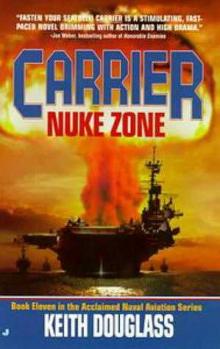 Nuke Zone c-11
Nuke Zone c-11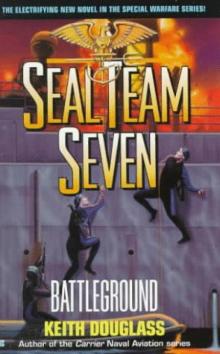 Seal Team Seven 6 - Battleground
Seal Team Seven 6 - Battleground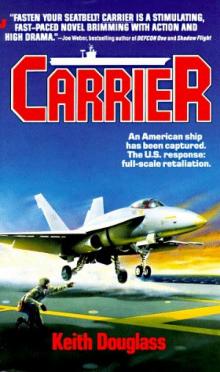 Carrier c-1
Carrier c-1 Island Warriors c-18
Island Warriors c-18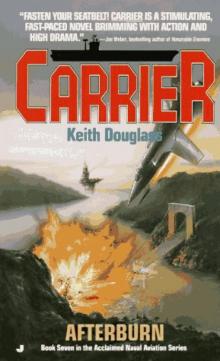 Afterburn c-7
Afterburn c-7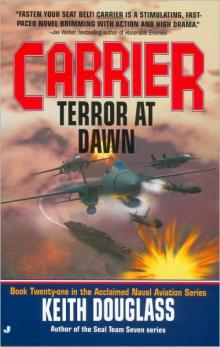 Terror At Dawn c-21
Terror At Dawn c-21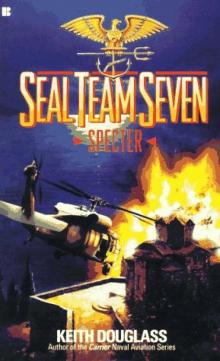 Specter sts-2
Specter sts-2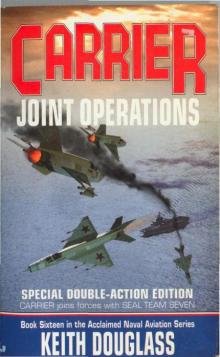 Joint Operations c-16
Joint Operations c-16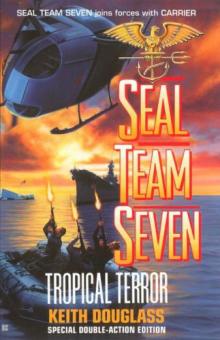 Tropical Terror sts-12
Tropical Terror sts-12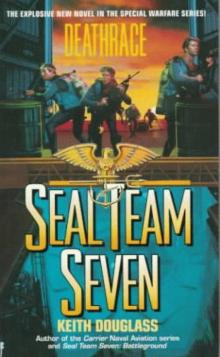 Seal Team Seven 7 - Deathrace
Seal Team Seven 7 - Deathrace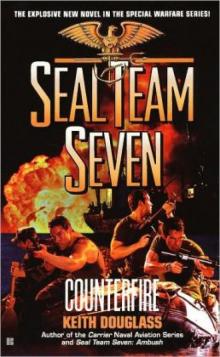 Counterfire sts-16
Counterfire sts-16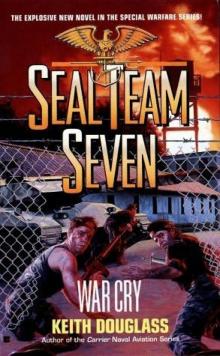 War Cry sts-9
War Cry sts-9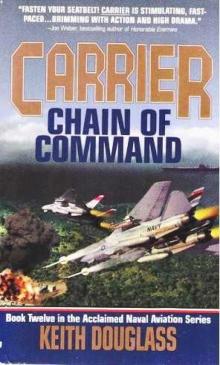 Chain of Command c-12
Chain of Command c-12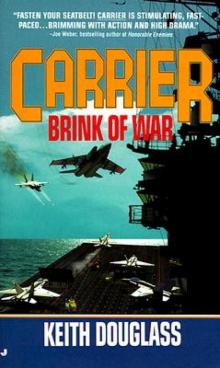 Brink of War c-13
Brink of War c-13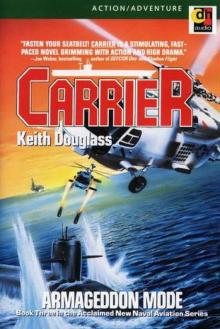 Armageddon Mode c-3
Armageddon Mode c-3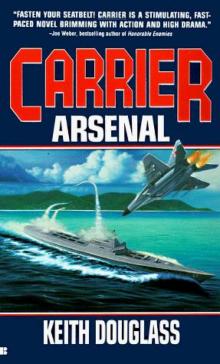 Arsenal c-10
Arsenal c-10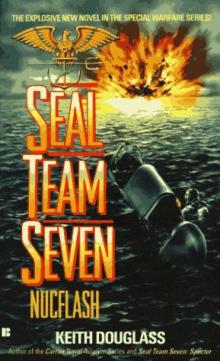 Nucflash sts-3
Nucflash sts-3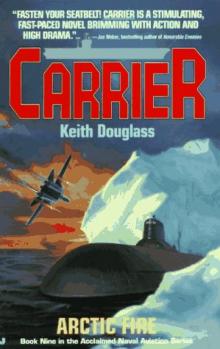 Arctic Fire c-9
Arctic Fire c-9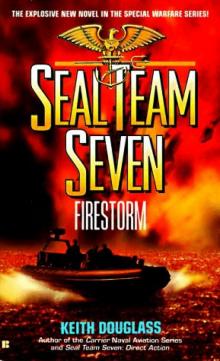 Firestorm sts-5
Firestorm sts-5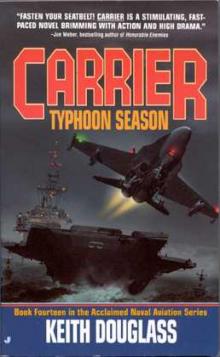 Typhoon Season c-14
Typhoon Season c-14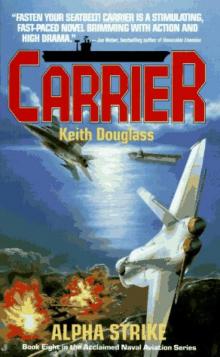 Alpha Strike c-8
Alpha Strike c-8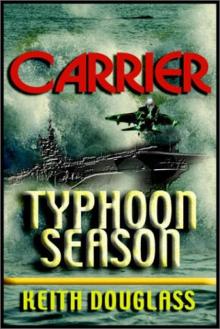 Carrier 14 - TYPHOON SEASON
Carrier 14 - TYPHOON SEASON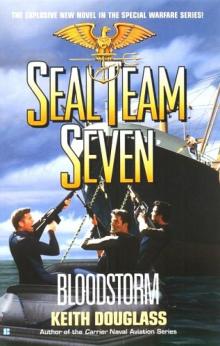 Bloodstorm sts-13
Bloodstorm sts-13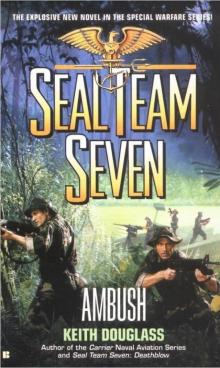 Ambush sts-15
Ambush sts-15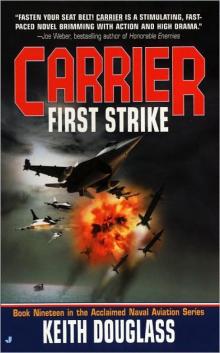 First Strike c-19
First Strike c-19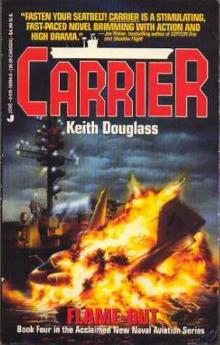 Flame Out c-4
Flame Out c-4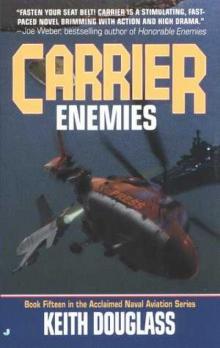 Enemies c-15
Enemies c-15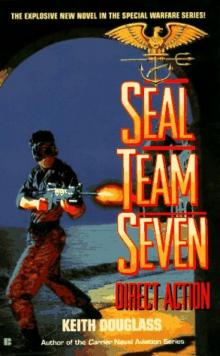 Seal Team Seven 04 - Direct Action
Seal Team Seven 04 - Direct Action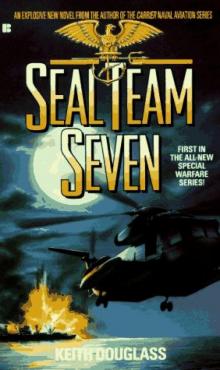 Seal Team Seven 01 - Seal Team Seven
Seal Team Seven 01 - Seal Team Seven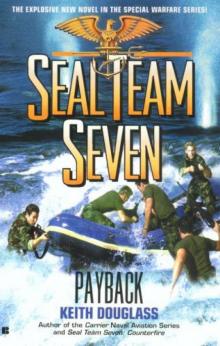 Payback sts-17
Payback sts-17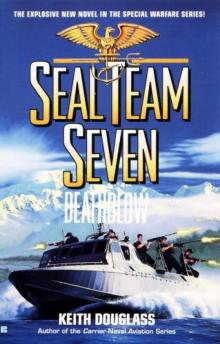 Death Blow sts-14
Death Blow sts-14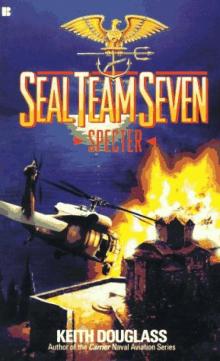 Seal Team Seven 02 - Spector
Seal Team Seven 02 - Spector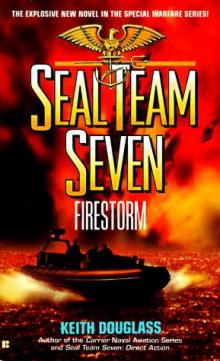 Seal Team Seven 5 - Firestorm
Seal Team Seven 5 - Firestorm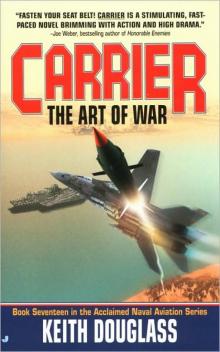 The Art of War c-17
The Art of War c-17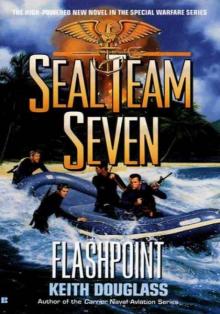 Flashpoint sts-11
Flashpoint sts-11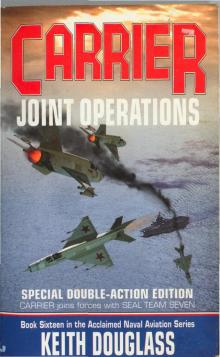 Carrier - Joint Operation Book 16
Carrier - Joint Operation Book 16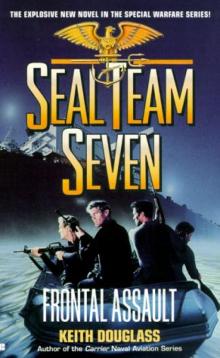 Frontal Assault sts-10
Frontal Assault sts-10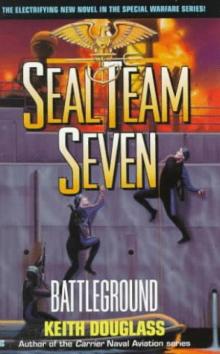 Battleground sts-6
Battleground sts-6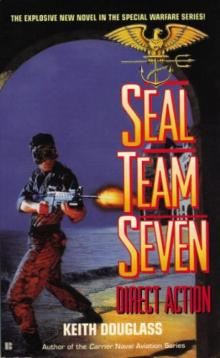 Direct Action sts-4
Direct Action sts-4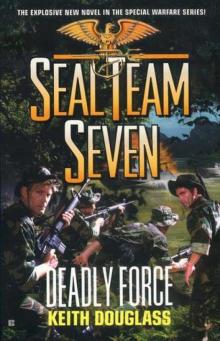 Deadly Force sts-18
Deadly Force sts-18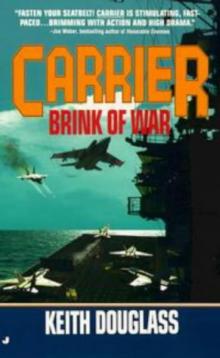 Carrier 13 - Brink of War
Carrier 13 - Brink of War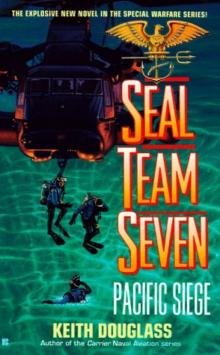 Pacific Siege sts-8
Pacific Siege sts-8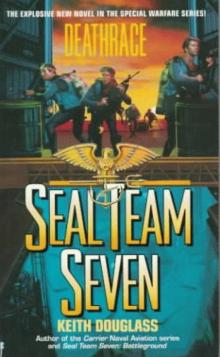 Deathrace sts-7
Deathrace sts-7